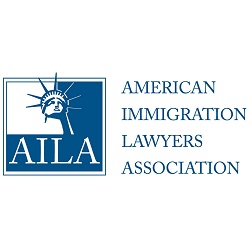 Visitor Visas: B-1/B-2
Visitor Visas: B-1/B-2
In most cases, a foreign national who wishes to come to the United States must first obtain a visa. A visa allows a foreign national to travel to a port-of-entry in the United States, requesting permission of a U.S. immigration inspector to enter the U.S. There are two types of visas: a non-immigrant visa for those who wish to enter the country on a temporary basis, or an immigrant visa for those coming to this country for obtaining permanent residency.
The “visitor” visa is a non-immigrant visa for foreign nationals who wish to enter the United States temporarily reasons that concern business (B-1), pleasure or medical treatment (B-2), or combination of both (B-1/B-2).
B-1 Business Visitor Visa
A B1 visa is issued to business visitors who wish to enter the U.S. for a temporary period to engage in legitimate business activities, such as meetings, conferences, negotiating contracts and consultations. B1 visa holders may not work in the U.S. and may not be paid from a U.S. source. Individuals, who seek to work in the United States should apply for a work visa, such as an H-1B or L-1 visa.
Who would need a B-1 Visa?
- Individuals who wish to attend scientific, educational, professional, business, or religious conventions, conferences, workshops or seminars.
- Individuals who intend to work on specific projects in the United States and be paid by a foreign employer; business professionals who wish to participate in commercial transactions (which do not involve permanent employment), such as negotiating contracts or consulting with business associates.
- Individuals who wish to undertake independent research studies, do market research or any other similar activity.
- Business professionals who wish to explore the possibility of setting up a subsidiary of a foreign corporation investment but the individual cannot remain in US to manage the established business.
- Personal or domestic assistants who come to the United States with a U.S. citizen or with a foreign non-immigrant employer traveling on a B, E, F, H, I, J, L, M, O, P, R, or TN visa.
- Technical personnel who are needed to install or service equipment in conjunction with a contract of sale, or to provide after sales service.
- Business professionals to need to attend meetings as a member of the Board of Directors of a United States Corporation.
- Individuals who wish to observe business, professional, or vocational activity as long as it does not involve any hands-on activity.
- Professional athletes who need to compete in a tournament that involves prize money and not a salary.
- Purchasing agents of a foreign employer who need to come to the United States to procure goods, components, or raw materials for use outside the U.S.
- Foreign business persons who need to come to the U.S. because of litigation.
B-2 “Tourist” Visitor Visa
The visitor visa is a non-immigrant visa for individuals desiring to enter the United States on a temporary basis for pleasure or medical treatment (B-2 Visa). The B-2 visitor visa is also referred to as the “tourist” visa.
A B-2 visa may also be used to enter the United States for certain types of study. Usually, student visas are only given to students attending full-time academic or vocational programs at a United States Citizenship and Immigration Service (USCIS) approved institution. But if one is traveling to the U.S. primarily for tourism, but while in the U.S. they want to take a short course of study that is recreational and not for credit towards a degree, and the course is less than 18 hours per week, then this is allowed on a B2 visa. An example of this is if one is taking a vacation to the U.S., and during that time they wish to take a two-day cooking class for their enjoyment, and no credit is earned, then this would be permitted on a B-2 visa.
Who would need a B-2 Visa?
- Individuals who wish to come to the U.S. as tourists.
- Individuals who wish to visit friends and relatives in the U.S. for a short time.
- Individuals who need to come to the U.S. for medical treatment.
- Foreign nationals who are coming to the U.S. to marry a U.S. citizen or Green Card holder, upon establishing with the consular official and the USCIS that after the marriage, individuals will depart from the U.S., even though intending ultimately to immigrate.
- Amateur athletes, musicians etc. who will participate in their respective activities in the U.S without any compensation.
- Individuals coming to the U.S. to participate in conventions organized by social organizations.
- Dependents of foreign national members of the U.S. armed forces temporarily assigned duty in the U.S.
- Dependents of crewmembers (D visa holders) or B-1 visa holders solely to accompany the principal foreign national, or dependents of nonimmigrants for which no derivative classification is available. For example, the elderly parent of an E visa holder.
- Individuals who wish to enter the U.S. to apply for special naturalization benefits on the basis of U.S. military service.
The process of applying for a B-1 or B-2 visa involves careful preparation. It is important to present an error free application the first time, since it becomes very difficult, if not impossible, to successfully obtain a B-1 or B-2 visa if you have previously been denied a visa. Errors on the B-1 or B-2 visa application process can make you permanently ineligible to visit the U.S. pursuant to a valid visa.
To find out how the process works, including tips for a successful visa interview and how to present the strongest application possible to successfully get your B-1 or B-2 visa the first time, contact us today to schedule a consultation with one of our U.S. licensed Immigration lawyers.


